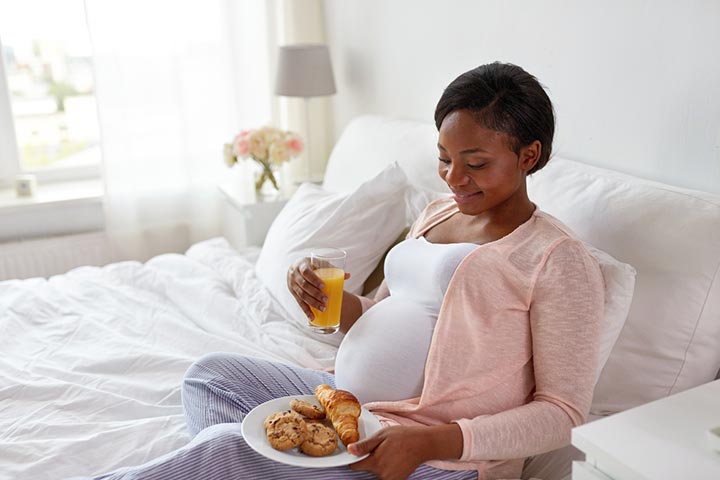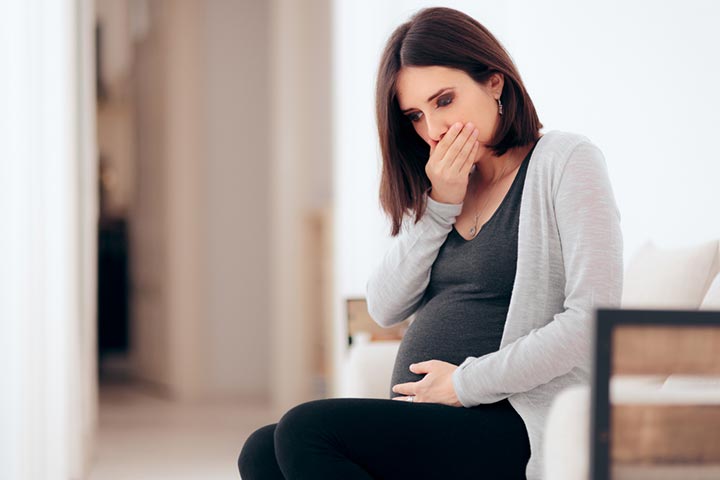
Image: Shutterstock
It’s that time of your life when you’ll hear a lot of unsolicited advice (from well-meaning people and know-it-alls), a whole lot of comments, and most importantly, a plethora of myths and midwives’ tales. In case you still haven’t figured out, we’re talking about pregnancy.
While myths and midwives’ tales are fun to hear and read about, they can also worry you if your journey through pregnancy doesn’t adhere to what people have told you. It can also lead to a lot of unrealistic expectations. With something like pregnancy, it is best to listen to and understand what the experts have to say. We’ve listed a bunch of myths and busted them! Read on to know more:
Myth: You Can Tell The Gender Of Your Baby
Truth: Yes, you can — with the help of a Non-Invasive Prenatal Test. You can’t tell if it’s a boy or girl based on the shape of your belly, how active your little one is, or by holding your wedding ring over your abdomen to see in which direction the baby kicks. If you’re curious about the gender of your child and your country’s legal system permits it, go for a gender screening. Don’t cling to myths that will raise your hopes, only to be disappointed that your baby turns out to be what you didn’t expect. After ten weeks of pregnancy, you will be able to take the Non-Invasive Prenatal Test. An ultrasound can also tell you your baby’s gender, but it isn’t always reliable, especially in the early stages of your pregnancy (1), (2).
Myth: You Need To Eat For Two
Truth: Nope. In fact, medical experts recommend no more than 200 to 300 additional calories when you are pregnant. Weight gain during pregnancy is inevitable, but unhealthy weight gain is not the way to go. Of course, how much you need to eat depends on how active you keep yourself, how many babies you’re carrying, and how far into the pregnancy you are, so check with your doctor to know what works (3).
Myth: You Mustn’t Exercise When Pregnant
Truth: This one is fairly common but such a popular misconception. You’re pregnant, not sick. In fact, The American College of Obstetricians and Gynecologists recommends close to one hundred and fifty minutes of moderate exercise every week. Try to fit in walking, indoor cycling, swimming, or weight training when pregnant to ensure you are physically active. It will help prevent extra weight gain, improve your mood, and even help you have an easier labor. Having said that, check with your doctor before deciding what exercises to practice. There could be a few that the doctor may advise you against now that you are pregnant (4), (5).
Myth: Morning Sickness Is A Morning Thing
Truth: Despite the fact that it’s called “morning sickness”, the annoying need to puke or feeling nauseous can actually happen at any time during the day. Thanks to all your hormonal changes, it is normal to experience morning sickness when you are pregnant. It usually begins in the early stages of pregnancy but goes away on its own by the third or fourth month (6).
Myth: Pregnant Women Always Glow
Truth: Not always. We’ve heard of the “pregnancy glow”, or even how women who are pregnant often have lush hair. But if none of this is relatable, don’t panic. A lot of women find pregnancy to be a time of immense physical changes. The hormones that come into play during pregnancy can cause many skin problems such as acne, dark spots, pigmentation, and rashes. Some women may even experience hair loss. The opposite may happen as well. So, it can go both ways, and it’s different for every woman (7).
Myth: Common Allergy Causing Foods Can Harm Your Child
Truth: People believe that if you consume common allergy-causing foods such as peanuts and milk, the baby in your womb may develop an allergic reaction. This isn’t true. If you are allergic to certain foods, stay away from them. You don’t have to worry about consuming it if you aren’t allergic. Having said that, there are a few foods that pregnant women should avoid. This is to prevent complications that may arise. These foods include raw meat, seafood, and a few varieties of cheese. These foods may put you at risk of contracting illnesses such as salmonella, coliform bacteria, and toxoplasmosis, to name a few. It is best to consult your nutritionist or healthcare provider for better clarity on what’s best suited for you and what you must stay away from (8).
Myth: Physical Intimacy Should Be Avoided When Pregnant
Truth: Physical intimacy or intercourse has no proven negative effect on pregnancy. A woman may choose to have intercourse if she wishes when pregnant, and it will not result in premature birth or other birth-related complications — this is what medical experts have to say. In fact, there are a lot of benefits associated with lovemaking during pregnancy. It can improve your mood, boost your immune system, improve your relationship with your partner, and keep you fit. However, in some cases, if your water has broken or if you have infections, your doctor may then ask you to refrain from physical intimacy (9).
Many people believe in outdated myths and misconceptions, and that won’t really do you any good. It is best to go by what medical professionals have concluded based on scientific evidence. Have you come across any fun myths that you thought to be true? Share them with us in the comments section below!



















